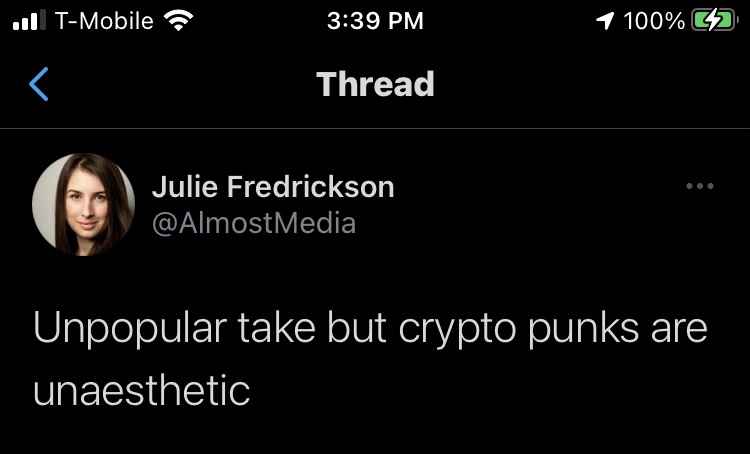Aesthetics are opinions. And opinions are totalizing. I’ve been on some bullshit recently about how taste is totalitarian. Mostly because I care about how aesthetics turn into politics. But aesthetics are almost always personal choices (except our biology which is another discussion entirely) which gives them wide latitude to be all encompassing.
That aesthetics are choices matters. We choose to articulate our aesthetics. If our tools have the capacity to articulate an aesthetic vision with clarity and fidelity it’s often been the choice of artists to render their vision closely to what is in their mind’s eye. Or sometimes we say fuck it, who cares, there is virtue going in the other way. I’d argue that is unaesthetic.
A deliberate decision to eschew aesthetics is literally the definition of unaesthetic. It’s not an insult. It’s just a choice. If we can tell something is a deliberate choice to pursue an aesthetic that is unappealing, unpopular, ugly or otherwise thumbing its nose its nose at beauty that is unaesthetic. Which is its own aesthetic. And it’s fine for that to be your taste but it is a taste.
Normative standards and boundaries are powerful. So rejecting them has become own own artistic and culturally pursuit. It’s become so popular “punk is dead” has become a layered insult.
Modernity has been on about how the search for universals of beauty is both hegemonic and homogenizing for most of the last century. That means everyone has to have the same standard and because we have the same standards we all tend to look alike. Think Stepford Wives or South Korean beauty pageant queens.
Understanding and telegraphing cultural norms of beauty is generally considered crucial for social competence and often for participation in any group. Think of how awkward it is to wear a suit into a startup or not wearing any makeup for sorority rush.
Sometimes I think beauty and aesthetic standards wish they were as totalitarian as technology. Protocols are literally limitations on what can and cannot be done. 8Bit and pixel art were originally protocol standards. What could be rendered wasn’t a limit of imagination but our tool sets. That’s why we obsessed on rendering and fidelity for so much of the history of computing. We’d say shit like “look how crisp” and we’d mean it.
That’s not true anymore. If anything we’ve got issues with too much fidelity. The uncanny valley of hyper reality upsets our mind because it’s hyper real. Aesthetics now has to cope with the ability to render even the most elaborate vision to exact reality. Now that’s a cool problem. But if you want to sell pixel art, call it punk, and tell me it’s actually a cool commentary on protocol limits that’s fine. But I’m going to call it unaesthetic. But it’s not worth being insulted about.

